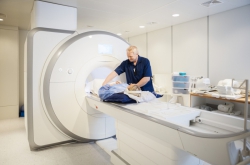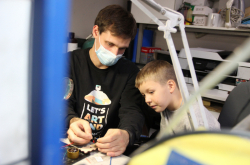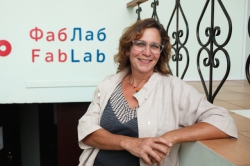School Patent - a Step to the Future
Every year, thousands of children and teenagers invent different devices and games, create and modify robots and machines. The School Patent - A Step to the Future contest has been conducted by ITMO's Faculty of International Business and Law for eight years already, and become a multi-faceted large-scale project. By 2017, it has eight regional offices with its headquarters in St. Petersburg. The program helps talented school students get consultations in the field of patent law and advice on finalizing their ideas, as well as invites them to participate in open lectures and summer schools dedicated to intellectual property. The program's finalists get special certificates that give benefits when applying to study at ITMO university.
Patent specialists and patent attorneys
Patent specialists and patent attorneys are experts in the field of patent law, mediators between the inventors and the Russian Agency for Patents and Trademarks. They help inventors patent their ideas and protect their intellectual property rights; also, they possess the technical knowledge necessary to correctly describe the idea in a patent application.
One should choose their patent specialist as they would choose a doctor - great mutual understanding is a must here. All in all, there are about two thousand such specialists in Russia, half focus on inventions. In St. Petersburg, there are about 300 of them; one can find the specialist he needs on the Russian Agency for Patents and Trademarks' website.
Why does one need to protect their inventions?
Patents give market privileges. Can school students get a patent? Yes, if they already have a passport (meaning they have to be fourteen at least). If the inventor is even younger, his idea can be patented by his parents or a scientific advisor (a supplementary agreement is concluded so that all the rights go to the inventor once he comes of age). The patent ensures the inventor's rights and also provides additional opportunities, as most investors are most interested in working with patented products.
Also, one should consider the phenomena of patent trolls - people who patent ideas in advance without working on prototypes, thus hindering other inventors' work on certain projects (as they already "own" the idea). You can always check whether the idea you're working on has already been patented with the help of the WIPO Technology and Innovation Support Centers (TISC). In St. Petersburg, one can find TISCs at St. Petersburg Polytechnic University, Mikhailovsky Military Artillery Academy, ITMO's Institute of International Business and Law and INFORM CJSC.
School Patent: IP Leaders BarCamp
BarCamp is a new, but already popular format of short presentations. This year, it has been chosen for presenting the projects by award winners of the School Patent: Step to the Future contest.
One of them was the Adventures of the Clever Kangaroo program by Lev Kerjentsev, a fifth grader at Lyceum #590. Every year, the Kangaroo mathematics contest is conducted amongst school students, but they are seldom trained for it. To win the contest, Lev developed a special program that helps third and fourth-year students train for this competition.
Another participant, Vyacheslav Gorash demonstrated a prototype of a device that can help the blind navigate the city.
"The invention is undoubtedly relevant, as blind people still have to rely on tactile devices (canes). The cities can't provide normal conditions for them to survive, which is why I focused on creating a compact device that can help the blind navigate cities without the need to rely on canes or any other archaic means," explains the young inventor.
Vyacheslav's device is to be worn on a hand, and processes visual information into sounds, thus providing the blind with information about their surroundings. The device's prototype was created using Lego Mindstorm parts; it defines the distance to an object and encodes it as sound. Also, it can tell the object's color and the level of lighting in a room. The student believes that this can help the blind be on par with those who can see.
Mecheslav Prenev from Voronezh presented his SmartWall program suite that allows controlling a computer using simple surfaces. It offers two types of programs: for stationary surfaces and mobile gadgets. How does it work? For stationary surfaces, the computer captures particular areas - touching them will initiate certain actions. For mobile gadgets, the computer captures some "anchor", which is then used to define interactive areas of its surface. The invention can be used in different fields - for instance, advertising or Smart Home systems, and save lots of resources spent on additional electronic devices and wiring.





